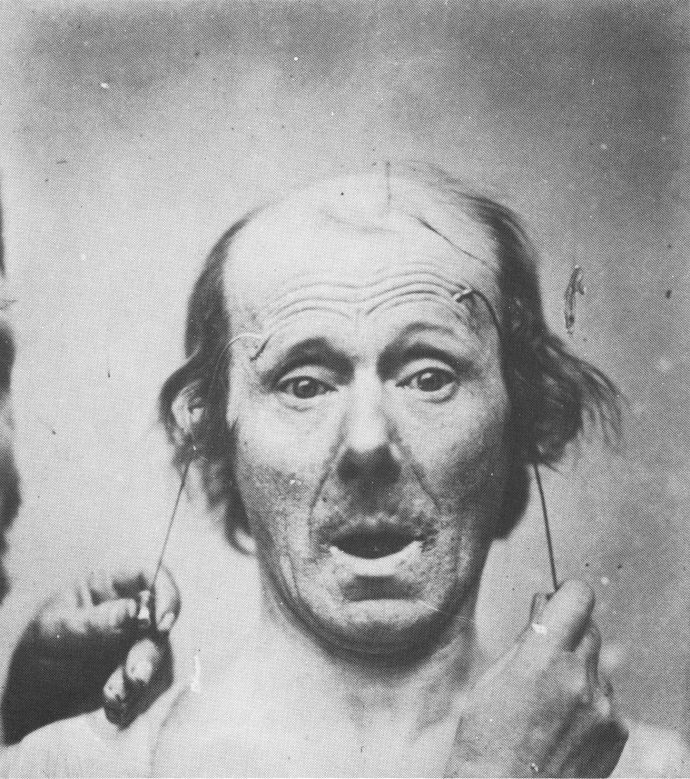
Martin Luther wrote this to a friend in 1530: “Whenever the devil harasses you thus, seek the company of men, or drink more, or joke and talk nonsense, or do some other merry thing. Sometimes we must drink more, sport, recreate ourselves, aye, and even sin a little to spite the devil, so that we leave him no place for troubling our consciences with trifles.”
As a boy on New Year’s Eve 1912, nine year-old Louis Armstrong snuck into his mother’s bedroom and borrowed a pistol from the pocket of one of her customers. His mother was a prostitute, his father had abandoned the family, and they lived in a rooming house in the Red Light district. Armstrong fired the gun at midnight to celebrate the New Year, but lucky for all of us a policeman happened to be standing nearby and arrested young Louis. A judge sent him to the Colored Waif’s Home. On the way there the driver said “Don’t look so sad, son. This is a good place. We have a band. What instrument would you like to play?” Armstrong’s eyes brightened. “The drums!” he said. “Well, we’ve already got plenty of drummers, but we need someone to play the bugle when we raise and lower the flag. You think that might interest you?”
Within a few years Louis Armstrong was playing trumpet in New Orleans brothels in the right place at the right time, for it was there and then that Jazz pretty much took shape. He is certainly the person most responsible for its popularity across the globe. Bing Crosby, who was the most popular singer of the day said that he thought Armstrong was the best singer alive.
Billie Holiday sang like Armstrong played the trumpet. Jimi Hendrix said he wanted to play the guitar the way Little Richard used his voice.
In 1955 in New Orleans, Little Richard pretty much single-handedly invented Rock and Roll in much the same kind of way Armstrong had Jazz only forty years earlier. His first big hit was a sanitized version of a dirty song he had been singing for years to entertain the kind of people he hung out with, prostitutes, drug dealers, and petty criminals.
Until he sang at a high school talent show, nobody at Hume High noticed Elvis. Before his appearance on the Ed Sullivan show, the Hillbilly Cat had been driving a truck. Elvis told interviewers that his singing idol was Dean Martin. Dino had obviously modeled much of his style on the crooning of Bing.
The real mystery is where did Bing come from?
Bing was not born in a brothel in New Orleans, but to an Irish working class family in Spokane, Washington. He was well-educated and briefly attended law school before deciding to drop out and become a musician. He played the drums pretty well, but his crooning and his intelligent use of the newly developed microphone was what set his apart from his peers.
Within a few months of arriving in Los Angeles Bing was the talk of the town. He easily transitioned from microphone to motion picture camera, and led the way for Sinatra and Presley to do the same. Even though modern day listeners think of him as a square, Bing thought of himself as a proto-hipster.
In retrospect, all these developments seem unlikely. Culture and new ideas leap in unpredictable spasms.Until Michael Jackson’s Thriller album, Bing Crosby’s Christmas album was the highest selling album in history. Quincy Jones produced Thriller and it turns out he and Ray Charles had been roommates in Seattle, after the blind pianist arrived after getting as far away from Florida as he could by Greyhound Bus.
Quincy Jones tells of being in Dizzy Gillespie’s band on a State Department goodwill tour of Brazil and meeting young Gilberto and Jobim sitting in the front row of the audience, hours before the concert was due to begin. That’s how excited they were about music.
After an audition, Decca rejected the Beatles, deciding they had little to offer. George Martin at EMI proved otherwise. Aretha Franklin really took off artistically when Jerry Wexler of Atlantic records understood and appreciated the real depth of her talent. Otis Redding was working as a chauffeur when he wrote and recorded “Respect.” Two years later Aretha had the mega hit, but Otis did it proud, as well. Marvin Gaye was a session drummer at Motown in Detroit when one day he filled in for an absent singer.
There’s a line in the Bible, “God chooses the foolish things of the world to confound the wise.” Even if you don’t believe in God or the Bible, you’ve got to admit that the delightful surprises Fate unleashes as it twists and writhes its way through Space and Time give us cause for hope. Nobody has any idea of what’s really going on. We might as well expect to be pleasantly surprised.
the following link leads to a recording of the author reading this essay
Loved this — especially the paragraph (even if you don’t believe) because my serendipitous experience of deepest pain has been countered by the unbelievable. Personally spending time with Louis Armstrong, dinner at Annie Leibovitz home, a supper in a rural Austrian inn with the CEO of Doctors Without Borders, and so many others. I’ve often been told I should write a book, but age, stamina, and memory are not helping. I don’t just believe, I know. So I still sometimes wonder if there is one more surprise just around the corner. I’d like that.